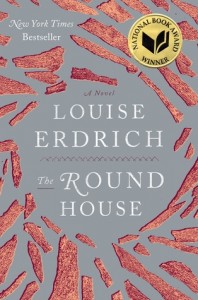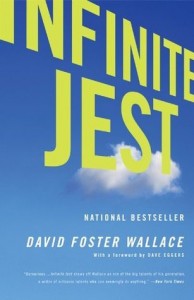 Title: The Round House (Goodreads)
Title: The Round House (Goodreads)
Author: Louise Erdrich
Published: Harper Collins, 2012
Pages: 321
Genres: Historical Fiction
My Copy: Hardcover
Buy: Amazon, Book Depository, Kindle (or visit your local Indie bookstore)
In Spring of 1988, a woman on a reservation in North Dakota was brutally attacked and raped. The details of Geraldine Coutts’ traumatising event slowly unfold as she reluctantly recounts the account to the police or her husband. Not only will her life be changed forever, but that of her husband Bazil and their thirteen year old son Joe. In just one day, Joe’s life is irreversibly transformed as he finds himself thrust unprepared into adulthood in Louise Erdrich’s National book award winning The Round House.
From the perspective of Joe we follow this tragic story from that one Sunday in the spring through all the challenges that face the family afterwards. Not only is justice difficult to find for the victims of rape but imagine just how hard it would be when there are laws preventing the North Dakota police arresting anyone on an Indian reservation. This is a look at the problematic laws between America and native tribes as well as rape victims. Can there be justice in these cases? The tribal judge and Joe’s father, Bazil has faced many problems with finding justice but this time it is so much more personal and really highlights the fact that these laws in America need to be changed which are being worked on but unfortunately due to these tangled laws, 1 in 3 Native women were reportedly raped in their lifetime according to a 2009 report (this figure could be higher as Native women often do not report rape) and 86 percent of the sexual assaults are perpetrated by non-Native men.
Not only is this book trying to show us just how bad the laws are at protecting Native women, but this book, from Joe’s perspective, goes into some other details , such as, a teenage boy growing up in a both a tribal environment and the modern world. The two cultures clash from time to time, not just when it comes to the laws and justice, but through a teenager’s eyes the modern and traditional worlds are so incompatible. Joe was an interesting character whose childhood was cut so short and being ill equipped to deal with adulthood really just added another dimension of struggle to this book.
It felt like this was a coming of age story for Joe, he was thrust into adulthood far too quickly but he was still struggling to grow. The whole sexual awakening and puberty and everything else he would have had to go through at the same time as trying to help his mother heal; I don’t know how someone would be able to manage in that circumstance. Louise Erdrich did try to explore the sexual awakening and rebellious phase of Joe’s life but due to the tragic event of his mother’s life, it become really difficult to balance the two and that was one of the major issues I had with the book. I felt like Erdrich was trying to do too much and maybe didn’t execute the plot well enough to manage her ideal outcome for this novel.
Then I found some of the minor characters to interchangeable and others far more interesting than the primary ones. The rest of the family apart from Geraldine, Bazil and Joe, all felt too similar that they should have been written out of the book completely. But then you have Grandma Ignatia with her raunchy stories, the old man who tell fables in his sleep and the ex-stripper and her past. All three characters, plus a couple more seemed far more fascinating than the main characters; I would have rathered a novel about them instead.
For me the novel started off difficult, the violent nature of rape has that effect. I found it difficult to get started and that never really went away; I wanted the book to end or change perspective or do something to keep me reading but it never did. I had to read this book for book club, so I did finish it. If it wasn’t for book club, I might have abandoned or put this book aside for a long time. Sure, there are interesting points this novel brings up but I don’t think it was deserving of such a prestigious award like the National Book Award. Then again the social spotlight on these tangled laws needed to be brought to the attention of all Americans and I guess this book did a good job at that.
I’m not sure if I want to read more of Louise Erdrich’s novels but I’ve heard good things about them, but I had heard good things about this book too. Rape and the social injustice of Native women are serious problems that need to be addressed so I will give Louise Erdrich credit for The Round House, it did its job. Thank goodness the novel I finished next was Snow Crash; review soon. I would like to know if anyone has read or plans to read The Round House and if they have some thoughts on the book and these issues.

 Title: Infinite Jest (
Title: Infinite Jest ( Title: The Virgin Suicides (
Title: The Virgin Suicides ( Title: Seating Arrangements (
Title: Seating Arrangements ( Title: Dirt (
Title: Dirt ( Title: The Silver Linings Playbook (
Title: The Silver Linings Playbook ( Title: Tenth of December (
Title: Tenth of December ( Title: The Lifeboat (
Title: The Lifeboat ( Title: Factotum (
Title: Factotum ( Title: The Unbearable Lightness of Being (
Title: The Unbearable Lightness of Being (